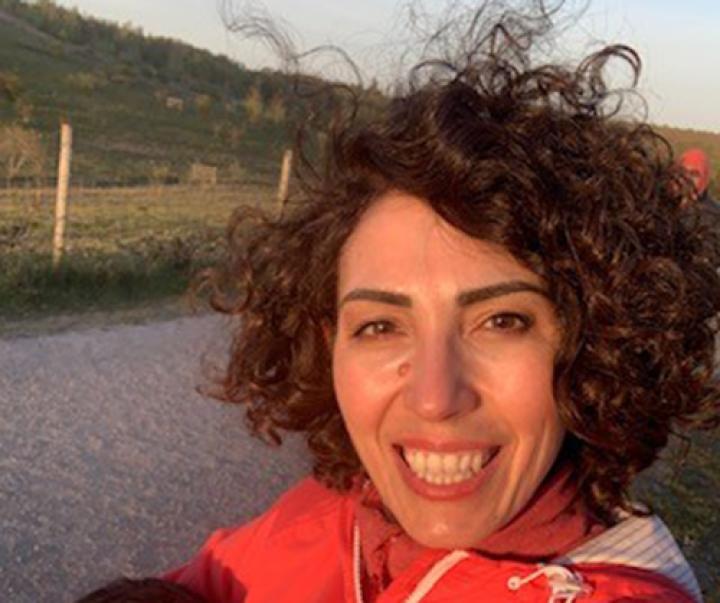WBA’s Strategy and Transformation Officer of Technology Maria Lensing shares wisdom she’s learned from her career and her heritage.
WBA Magazine
Breaking down the disability stigma
Learn about challenges and opportunities for people with disabilities in the workplace with Rosa Salamone, chair of WBA’s DisAbility Alliance UK business resource group.


In 2020, the UK Office for National Statistics found that around half of disabled people aged 16 to 64 years in the UK were employed, compared to more than 8 in 10 non-disabled people.

Unfortunately, getting hired is only half the battle people with disabilities face in the workplace. Once they receive a job offer, the next hurdle can be the biggest – feeling represented and included at their jobs. Some join a company only to feel left out, misunderstood or like their needs are not always considered.
WBA Magazine spoke to Rosa Salamone, chair of the DisAbility Alliance UK business resource group (BRG) to find out how WBA is harboring a community where disabled people can thrive.
What made you want to become chair of the DisAbility Alliance UK BRG?
This is a cause close to my heart. Throughout my life, I have noticed many people are biased toward individuals with disabilities. They judge people without having any knowledge of how a condition may present itself. I want to be able to provide a voice for those who do not have one themselves or who have otherwise felt forgotten or neglected. I joined to be an ally, an ambassador and an agent for change in the workplace.
Since joining the BRG, what have you learned about what people with disabilities go through at work?
Disabilities are still stigmatized – not only in how able people view them, but also in how disabled people actually view themselves. So many of them don’t feel they have the right to speak up. Some with hidden disabilities won’t even divulge them to their manager. As a society we still have a long way to go, but as a business, we are heading in the right direction.
Was there a moment that really resonated with you during your time with the BRG?
We had a man called Martyn join our BRG to talk about his Facioscapulohumeral Muscular Dystrophy (FSHD) and what life is like for him as a wheelchair user. During the talk, he shared that when he is out with his family, people tend to direct questions about him to his family, as if he is not able to respond for himself. It shows that many wrongly believe a physical impairment equates to some form of cognitive/intellectual limitation.
What is your future vision for the BRG?
I would like the BRG to evolve into a center for gaining knowledge and resources and to be a sounding board for decision-makers and team members. On a wider scale, I hope for it to be a safe place for our members, where concerns and issues can be raised and used in a constructive way to make the workplace an inclusive environment where everyone can flourish and feel their best.
How does WBA help people with disabilities?
I’ve really noticed that people want to make a difference, they want to help. Often people judge because they have a lack of knowledge. WBA is committed to improving our knowledge so that we understand each other better and become a truly inclusive employer. We celebrate differences here.
What advice would you give to both employers and employees about becoming more inclusive?
One word: empathy. If we really try to understand someone’s else’s world and feel it from their perspective, we would be in a better place in terms of inclusivity. I find it shocking that in 2021, there aren’t any executives or senior managers in the Financial Times Stock Exchange 100 Index FTSW (FTSE) 100 list who have disclosed a disability. This is one of the biggest disparities I have seen within the minority groups (gender, race, age, etc.). There needs to be a disabled person in a prominent position like this to represent their community.
Each of us should consider the contribution we can make to bring about a truly inclusive environment, in the workplace and in society. All businesses should give their employees an opportunity to speak up. Feeling like you have a voice is extremely important in order to shift culture, particularly around micro-aggressions, the everyday put downs that marginalize minority groups. It’s also important to think about our unconscious bias and try to mitigate assumptions toward our fellow humans, regardless of what we look like on the outside, be it gender, age, race, disability, sexual orientation and more.